Sentence construction Normal Writing Worksheets for Ages 4-7
11 filtered results
-
From - To
Enhance your child's writing skills with our Sentence Construction Normal Writing Worksheets designed for ages 4-7. These engaging and interactive worksheets encourage young learners to form complete sentences, fostering their creativity and language development. Through fun exercises and guided practices, children will learn proper word order, punctuation, and sentence variety. Perfect for both classroom and home use, these worksheets are aligned with early learning standards, ensuring that children build a solid foundation in writing. Spark your child's imagination and boost their confidence in expressing ideas. Discover the joy of writing with our carefully crafted resources today!
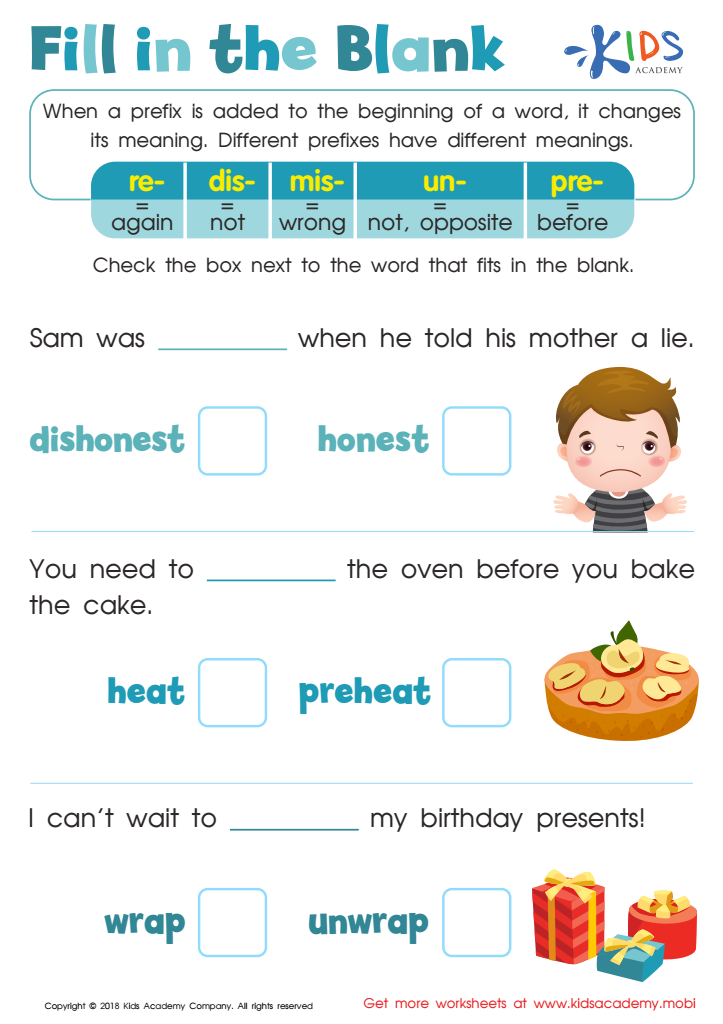

Reading: Fill in the Blank Worksheet
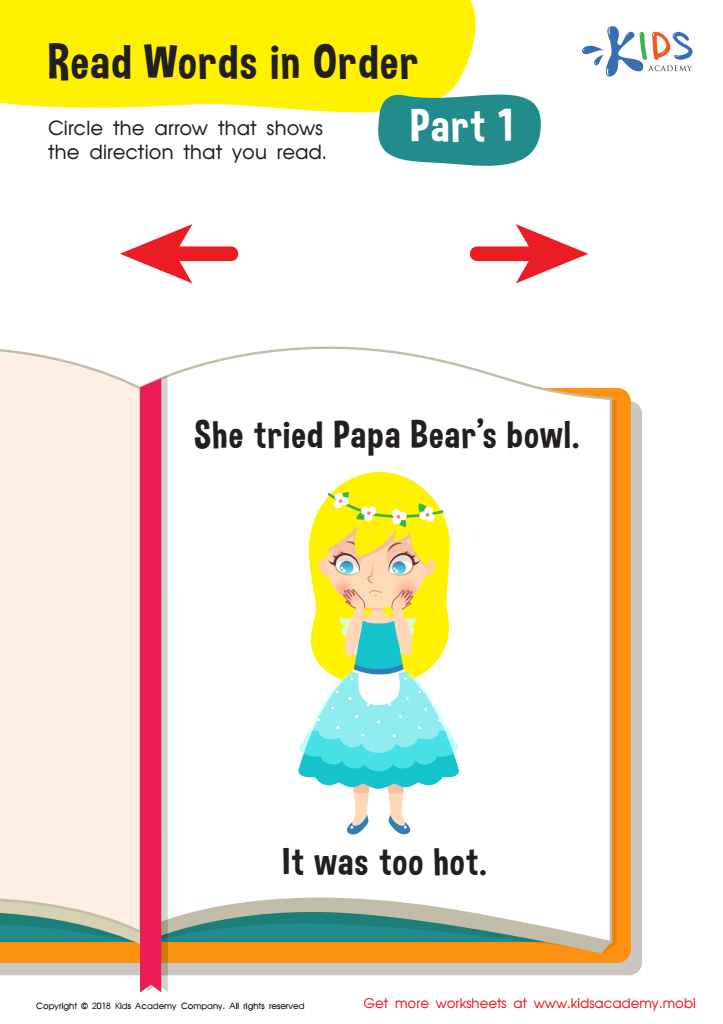

Read Words Order Part 1 Worksheet
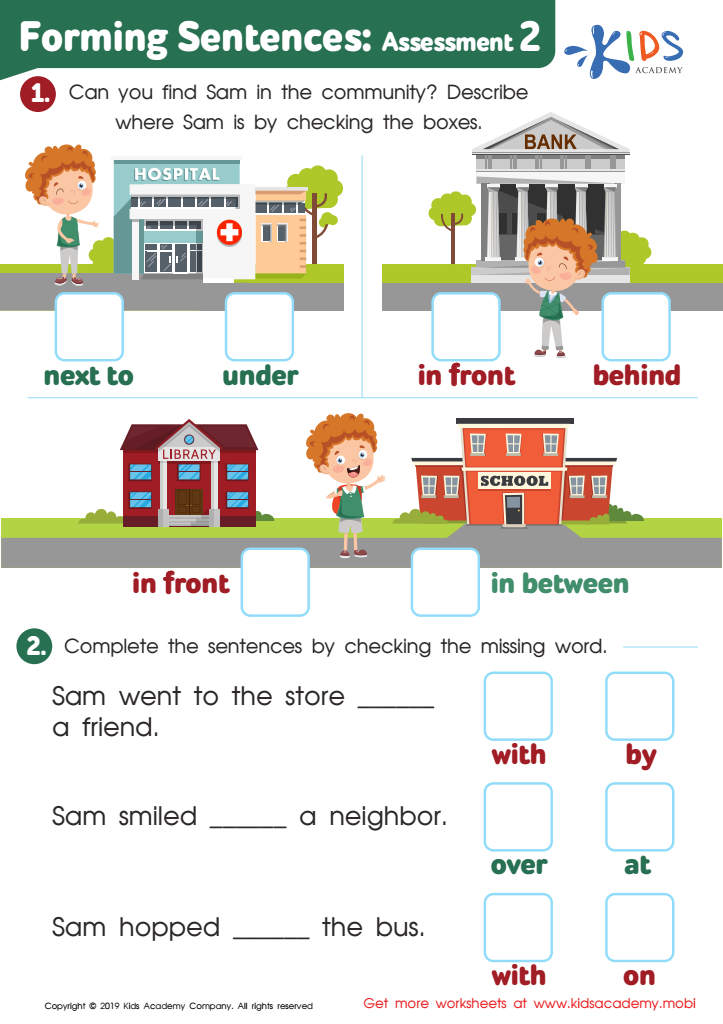

Forming Sentences: Assessment 2 Worksheet
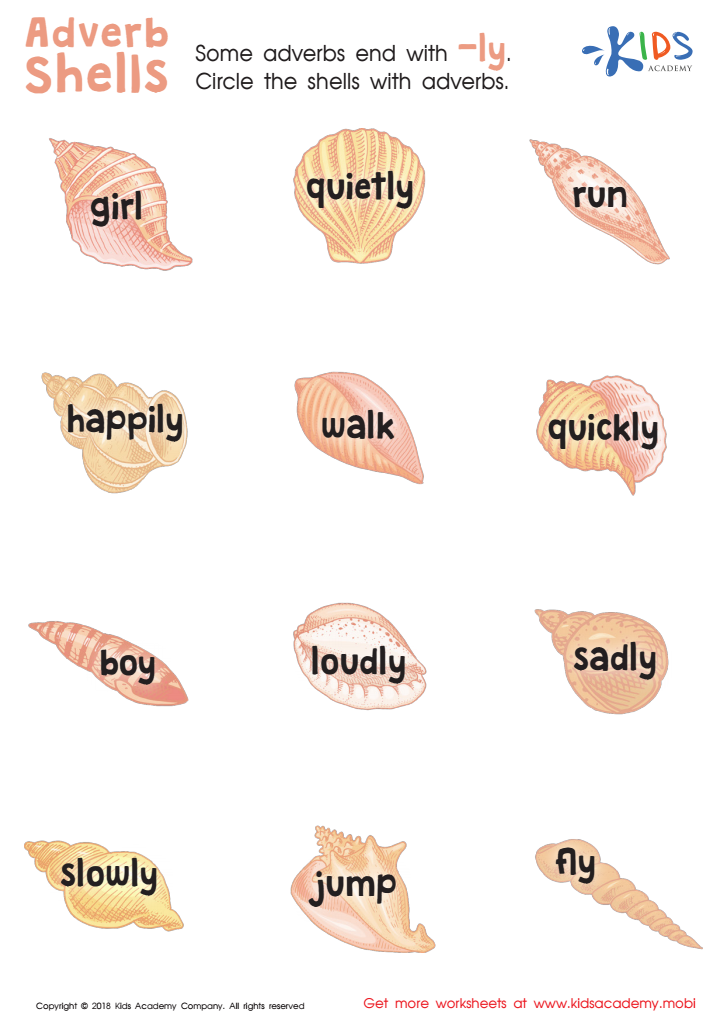

Adverb Shells Worksheet
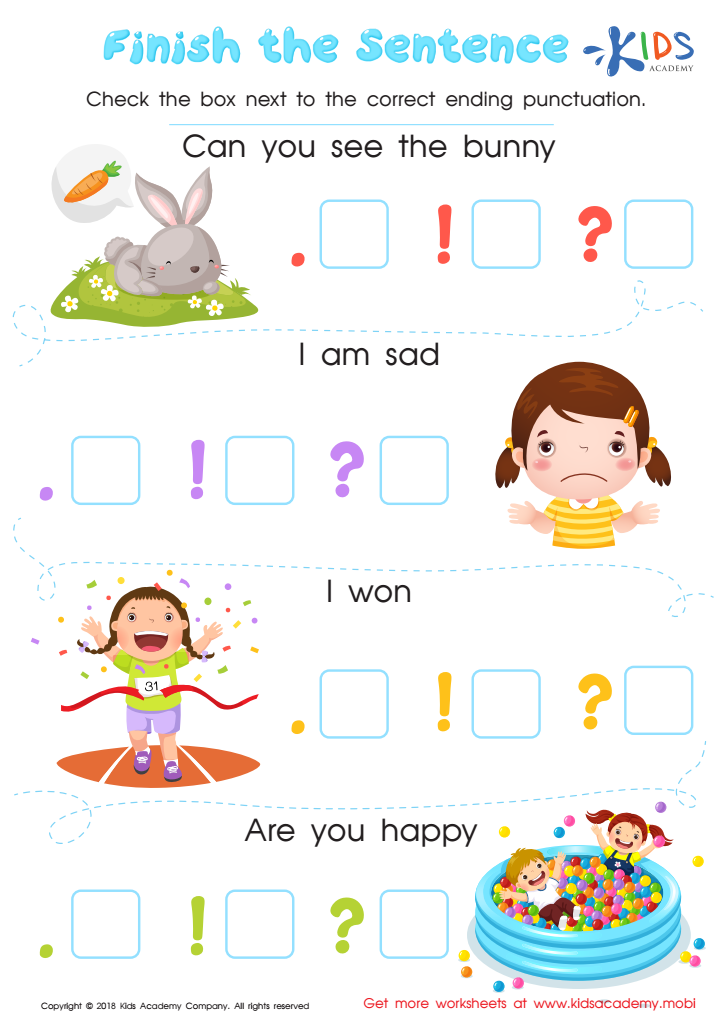

Finish the Sentence Worksheet
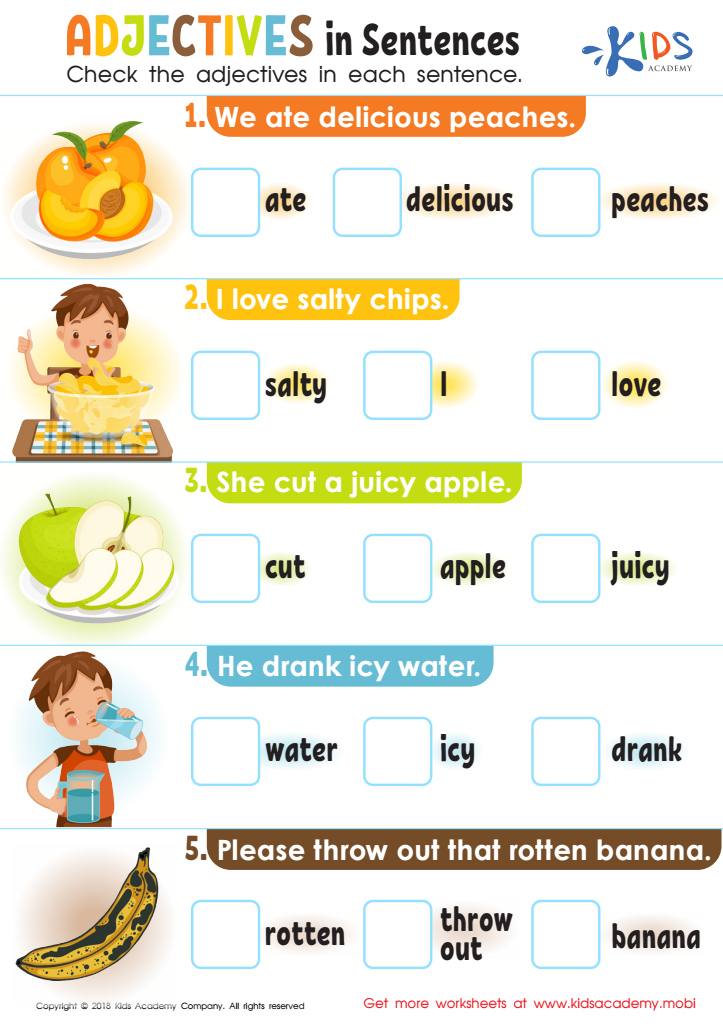

Adjectives in Sentences Worksheet
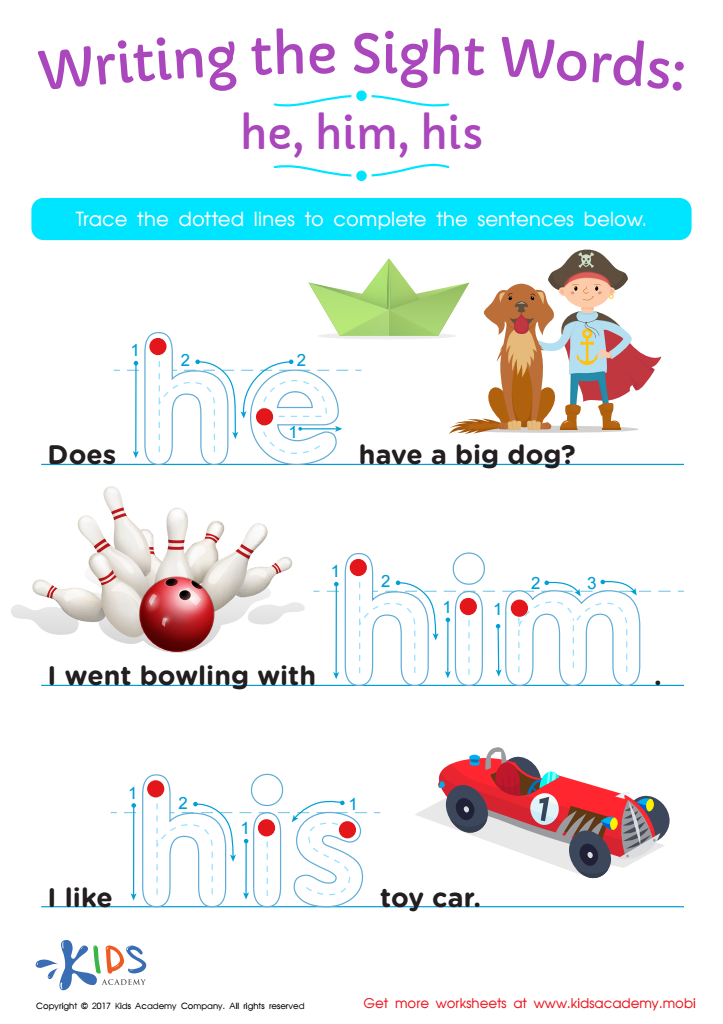

He, Him, His Printable Sight Words Worksheet
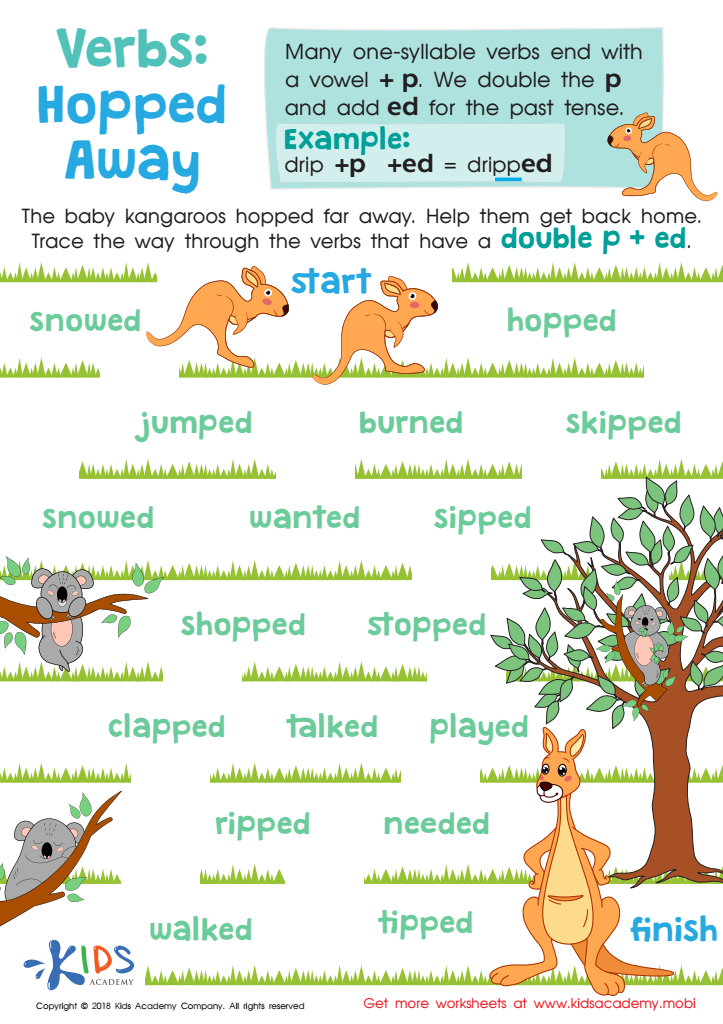

Verbs: Hopped Away Worksheet
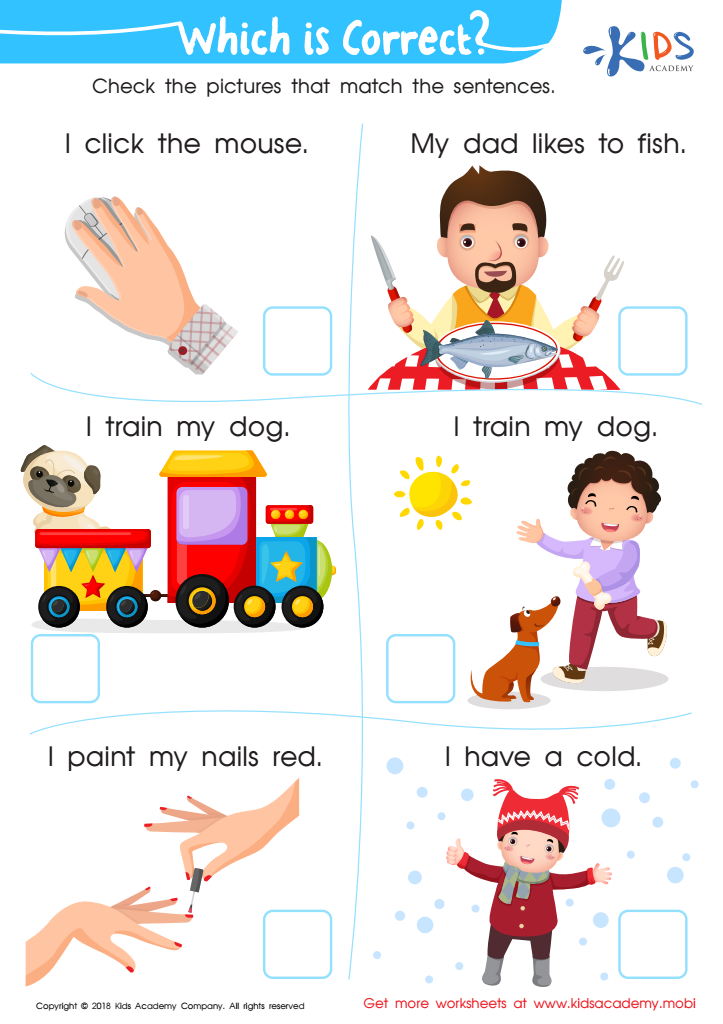

Which Is Correct? Worksheet
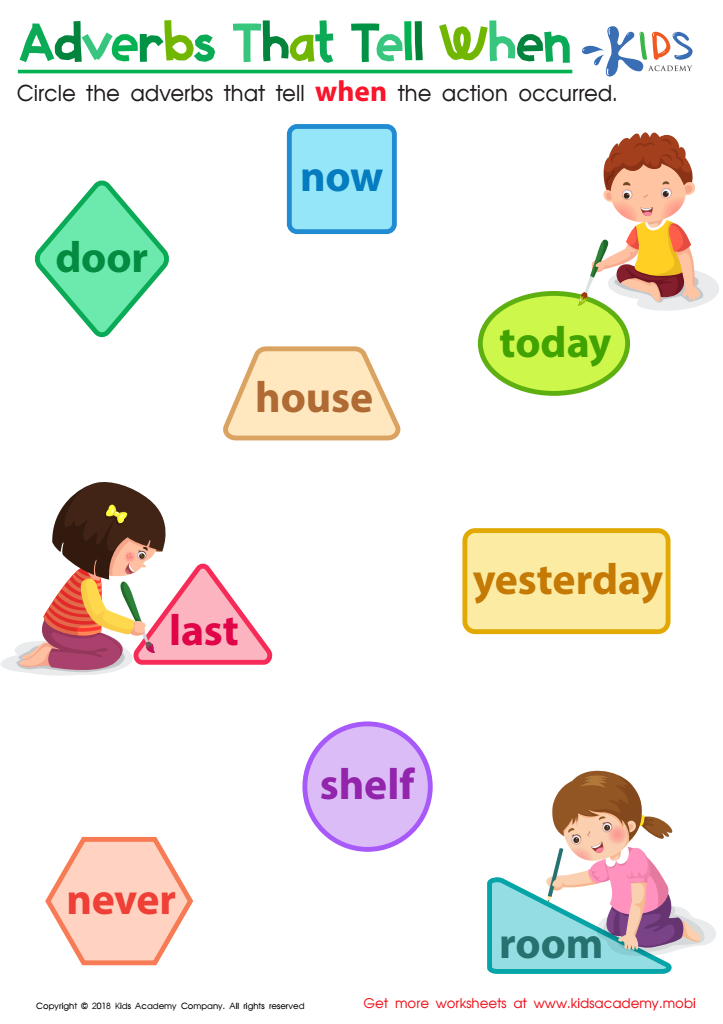

Adverbs That Tell us When Worksheet
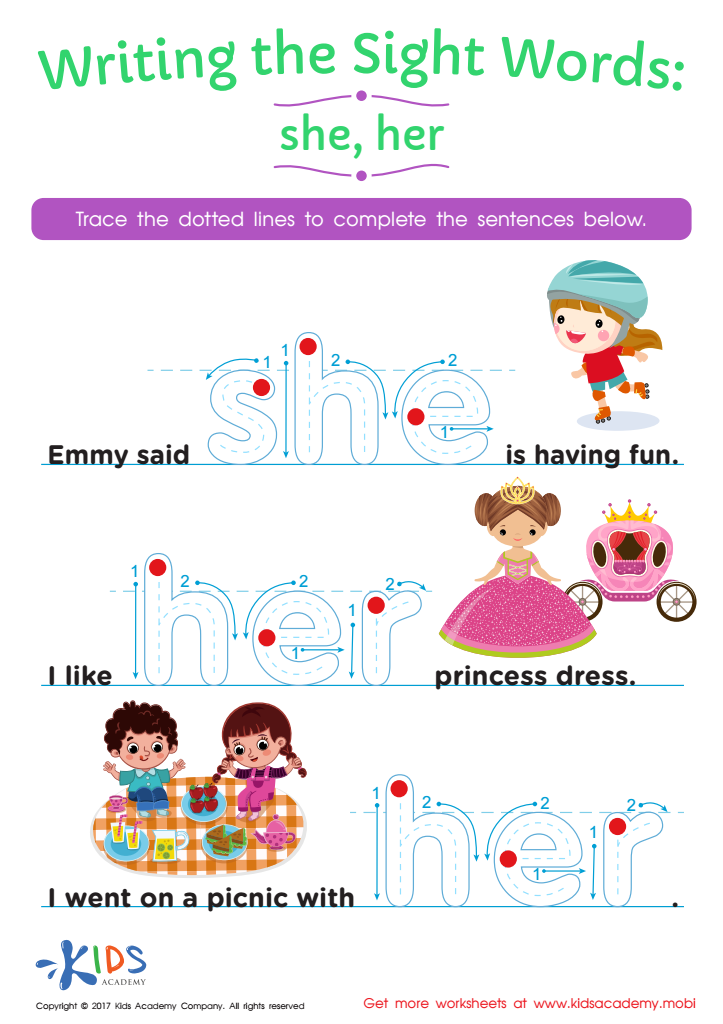

She, Her Printable Sight Words Worksheet
Sentence construction is a foundational skill for children aged 4-7, and its importance cannot be overstated for both parents and teachers. During this developmental phase, children are learning to express their thoughts, feelings, and ideas. Building strong sentence construction skills equips them with the means to communicate effectively, which is essential for academic success and social interactions.
When children learn to construct sentences, they enhance their vocabulary and improve their grammar. This not only aids in their ability to write but also boosts their reading comprehension. Parents and teachers play a pivotal role in guiding children through this process. Encouraging them to ask questions and formulate complete sentences helps foster their critical thinking skills.
Beyond academics, proficient sentence construction builds self-confidence. Children who can articulate their ideas clearly are more likely to engage in conversations and participate in group activities, enhancing their social skills. Furthermore, these skills lay the groundwork for more complex writing tasks as they grow.
In essence, focusing on sentence construction during these formative years nurtures a child's communication skills, enriches their learning experience, and prepares them for the challenges of higher education and life beyond the classroom. Investing in this essential skill is thus crucial for their holistic development.
 Assign to My Students
Assign to My Students





















